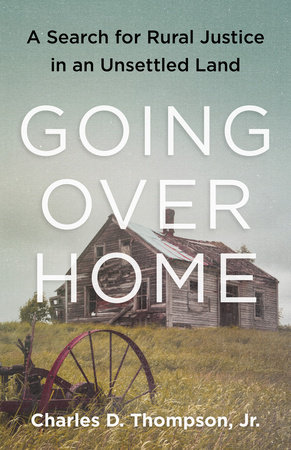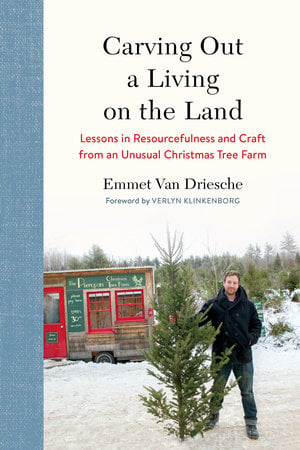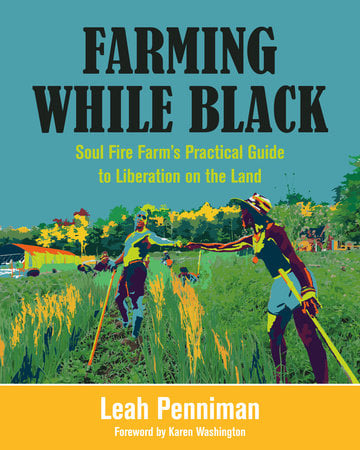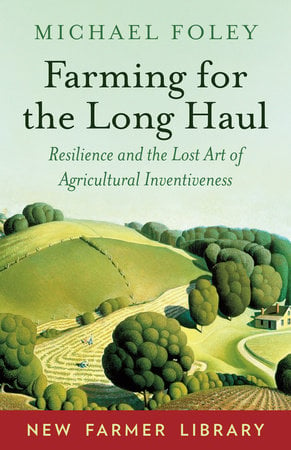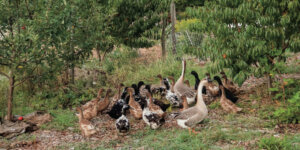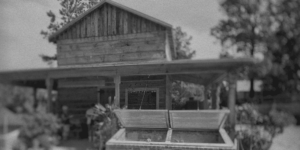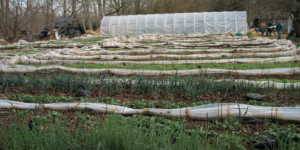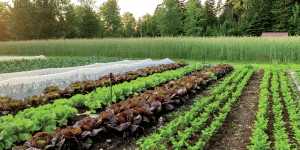Why Isn’t Farming Enough?
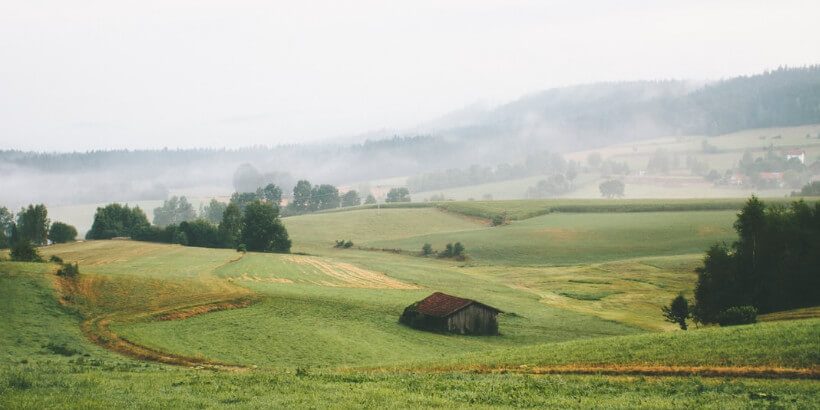
Years ago family farms were an abundance. Generations of farmers passed the land down in hopes of it continuing to prosper. However, these farms are a rarity; smaller ones are put out of business by large corporations and the cost of maintenance yields no profit. Many farmers have to find other means of making a living in order to keep their beloved farm.
The following is an excerpt from Going Over Home by Charles Thompson, Jr. It has been adapted for the web.
Before I was even five years old, I plunged into farm work with my grandfather, trying to copy his every movement. In turn, my effort yielded the kind of affirmations every child craves. “Look at Charles,” Grandpa would say as I tried some Herculean task like lifting a sack of grain impossible for someone my age. “He’s strong!” When the adults butchered hogs, I turned the handle of the manual sausage grinder until I had to be told it was time to stop. In the garden, I grasped the small hoe and tried to keep up with Grandpa as he chopped between the rows of sweet corn.
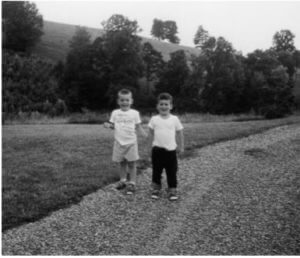
Charlie Thompson with his cousin Bruce Martin on their grandparents’ farm.
Over time, I learned to run farm equipment by riding beside Grandpa on the tractor fender and lifting the handle that operated the three-point hitch when he gave the word; to drive a truck by first steering it in the hayfield, then riding beside Grandpa and shifting the gears when he instructed; to cut firewood by holding limbs in place for his next chainsaw cut; to build fences and sheds by holding the other end of his tape measure; to doctor animals by filling the syringe with penicillin and handing it to Grandpa so that he could give a sick cow a shot; to sharpen tools by turning the crank of the grinding wheel; and to repair machinery by finding the tools by name. “Go get me the three-eighths wrench,” Grandpa would say, and I rummaged through the pile on the greasy workbench until it surfaced.
Grandma taught me how to turn home-raised meat and vegetables into meals. I used a biscuit cutter, mixed batter, and rolled pie dough before I could read. Soon I was pouring the leftover food scraps into the slop bucket at the basement steps, completing the whole cycle of growing vegetables from seed to basket to freezer to cast-iron frying pan and then back to the animals.
Through side-by-side work with the older generation, I learned details about farms my town friends had no inkling of.
I remember arguing with two friends, neither of whom had rural relatives, that cows as well as bulls can have horns. We got the shop teacher to settle the score. I knew already because I had milked a Guernsey with horns, but my friends didn’t believe me. I’m sure that few others in my junior high school in town had milked by hand, made butter with a hand churn, or learned how to tie the twine in a hay baler. As a result, I won most every argument about where food comes from.
But it took me much longer to learn the harsh realities of farm economics, largely because as much as my family talked about farming, my relatives went silent on how little small farms paid. Because of this silence, I thought my father left the farm for a town job only because he wanted to. Believing that our living apart was merely a choice, I probably begged to stay later on Sundays a little too much. By the time I started to understand the larger economic picture that caused my parents to move away, my extended family’s grip on their farms had already started to slip.
One of my first economic lessons came through my grandfather. He repeatedly asked me what I wanted to be when I grew up. Actually, he 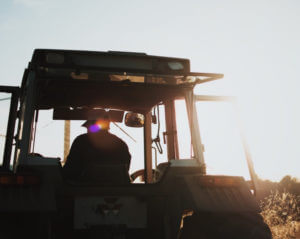 already had the answer figured out and reminded me every visit. I can hear him now: “You gonna be that vet?” to which I always replied, “Yes, sir,” wanting to please him with all the determination I could muster.
already had the answer figured out and reminded me every visit. I can hear him now: “You gonna be that vet?” to which I always replied, “Yes, sir,” wanting to please him with all the determination I could muster.
It’s true, being a veterinarian was a job I could imagine for myself. I loved animals, and I agreed that the idea of driving around in a truck filled with medicines to visit farmers and work on their livestock was attractive. But I felt less than truthful telling Grandpa that was my first choice of vocation. So one Sunday, instead of answering yes, I decided to ask, “Why can’t I be a farmer?” We both knew I wanted to be just like Grandpa, and so it seemed natural to me that he would want me to join him in his work.
Grandpa and I were sitting in aluminum lawn chairs with plastic webbing near the big cedar tree between the house and barn. The family had just finished playing some softball in the front yard, and afterward I was probably whittling on a cedar branch with Grandpa’s pocketknife as I usually did on such occasions. He watched me for a few seconds, pondering how to answer his eldest grandson’s query. Then he replied, “I know you like farming and working with animals and everything, but being a farmer doesn’t pay much. A vet makes plenty of money. My vet has a big fine house in Rocky Mount. I think ‘vetting’ would be a good job because they can set their own hours and don’t have to work so hard to make a living.”
I always wanted to follow Grandpa everywhere he went, at times to my own endangerment. The only time my grandmother used a switch on me was when I was not yet five years old, for running toward Grandpa’s two-ton truck as he was driving away. He had decided to leave me behind on an all-day trip to buy fertilizer that he would haul back and sell to individual farmers—one of his many sideline jobs.
I just had to go, and I believed that if I could only jump onto the running board, he would have to stop and take me with him. So I dashed for the truck, and my grandmother, in a panic, ran after me, grabbing my collar just as I reached the end of the front walk. Then she reached up to the maple tree above, broke off a small branch with the leaves still attached, and switched my bare legs with it. I sulked for hours afterward. The switching barely hurt, but my feelings smarted for hours. I would have gone with Grandpa all night, I whimpered. I would have slept in the truck, anything to be with him.
Over time it became clear to me why he worked so hard at so many jobs.
Hauling 10-10-10 fertilizer for long hours was just one of the ways Grandpa devised to support their farm. Along with fertilizer hauling, he also used his two-ton Chevrolet to transport neighbors’ cattle to the stockyard, logs to sawmills, and sometimes even to haul gravel from the rock quarry to spread on neighbors’ driveways. He did this all fitted around his usual farming demands. These sideline jobs were part his survival strategy; he could not have been a farmer without them.
 By the time I was twelve, he had also added the job of “carrying” the Roanoke Times in his farm pickup to some six hundred individual paper boxes every night, seven days a week. As I helped my aunt count up his monthly earnings that customers mailed him in envelopes, I began to absorb just how hard it is for a small farmer to make a living. Each of the little checks, which we counted and stamped For Deposit Only, had to pay for the papers first, then the gas and truck upkeep. What was left would help pay the bills on the farm. I could do the math. Grandpa was sacrificing all of his time, even when farmers should be sleeping, to keep the farm going.
By the time I was twelve, he had also added the job of “carrying” the Roanoke Times in his farm pickup to some six hundred individual paper boxes every night, seven days a week. As I helped my aunt count up his monthly earnings that customers mailed him in envelopes, I began to absorb just how hard it is for a small farmer to make a living. Each of the little checks, which we counted and stamped For Deposit Only, had to pay for the papers first, then the gas and truck upkeep. What was left would help pay the bills on the farm. I could do the math. Grandpa was sacrificing all of his time, even when farmers should be sleeping, to keep the farm going.
A child couldn’t keep up. Grandpa’s paper route started at eleven p.m. and ended past sunup around eight a.m., and on Sundays sometimes as late as nine a.m. He farmed by day, raising beef cattle, hay, hogs, chickens, and all the vegetables the family needed. He couldn’t have slept more than three or four hours after supper and his bath, before getting up at ten at night and preparing to leave. Spending a few weeks over several summers on the overnight route and trying to help him farm by day taught me in the most direct way about the struggles of earning a living as a small farmer.
After attempting, unsuccessfully, to keep my eyes open all night and falling asleep in the truck seat with rolled newspapers in my lap, I also slept through the next day’s hay cutting and baling, only to awaken in the early afternoon in time for supper, feeling groggy and disappointed. Grandpa was often coming in from the field just as I was getting up. How unfair, I thought selfishly, until I realized how hard he had been working while I was in bed.
It all made me wonder, “Why isn’t farming enough?”
Recommended Reads
Wild Apples, Real Cider, and the Complicated Art of Making a Living
Recent Articles
When it comes to rabbits, the Angora is the most commonly used breed for wool. It is exceptionally fine and renowned for its softness, warmth, and fluffiness!
Read MoreReady to start your silvopasture journey? First things first: which animals are right for YOUR land?
Read MoreExtend Your Growing Season with a Cold Frame! Plant earlier in spring AND grow later into fall. Build your own cold frame and enjoy a longer harvest season! Ready to grow more, longer?
Read MoreGrowing year-round is a challenge, but it’s not impossible. Follow these growing tips, and you’ll be well on your way to growing year-round!
Read More

